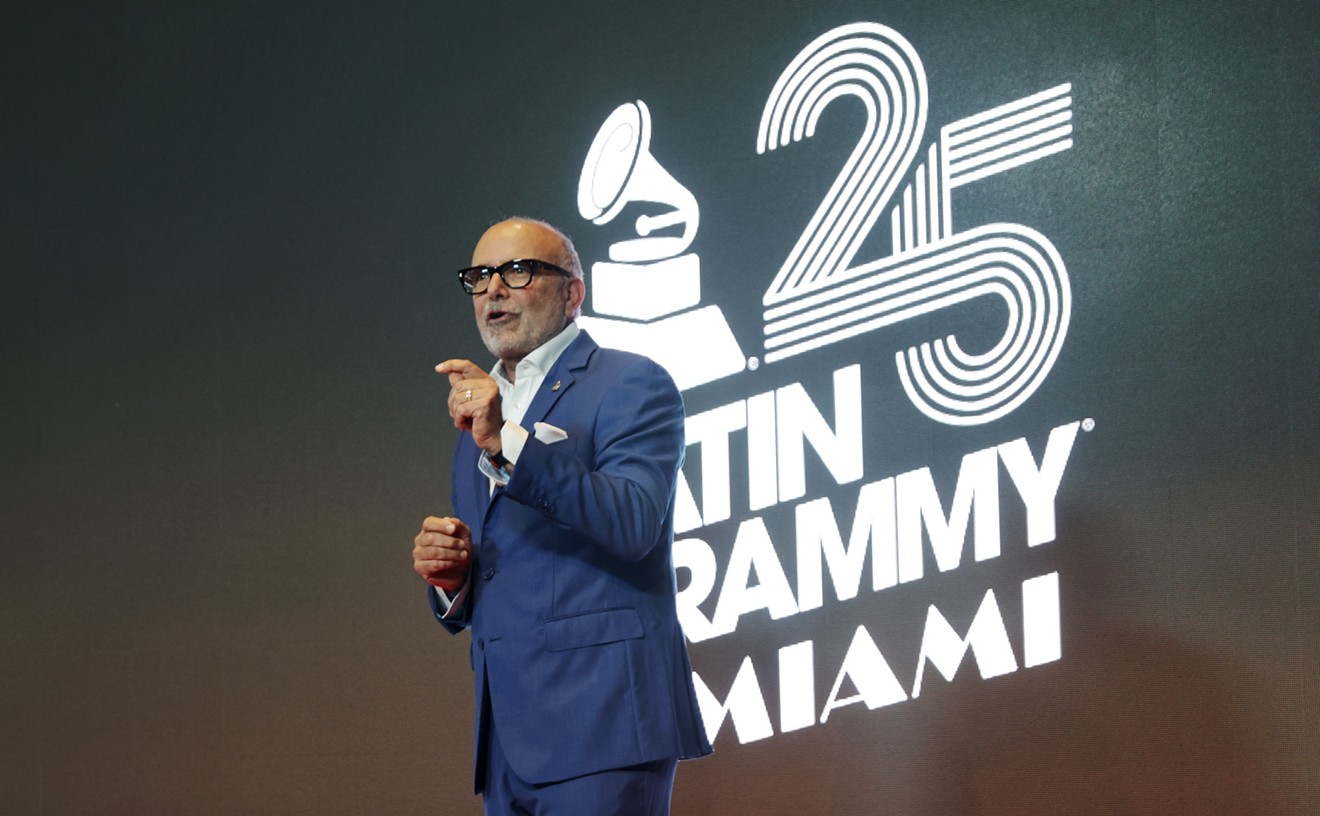When people refer to Brazil as a land of endless rhythms and melodies, what comes to mind isn't usually a wacky mix of grunge, metal, booty bass, and funk. But Brazilians are an eclectic folk. So it's not surprising that in 2002, Bonde do Rolê, the nation's latest youth sensation export, created a new sound in the members' hometown of Curitiba.
"It's basically a really boring city with a bunch of rockers and techno dudes. Few people had a varied sense of musical taste," founding Bonde do Rolê member DJ/MC Rodrigo Gorky explains by e-mail. "Maybe that's why the parties me and Pedro [D'Eyrot] used to throw back in Curitiba were all empty, ha, ha, ha."
They certainly aren't now. Since the band broke into the international market about two years ago, its insane beats and Portuguese-language chants have shaken up all kinds of parties, concerts, and even TV commercials. Much of this is thanks to Philly-based producer Diplo, best known for his work with M.I.A. He discovered the group on one of his frequent trips to Brazil, eventually releasing tracks on his own Mad Decent label and giving the band heavy rotation on his online radio shows and podcasts. This, in turn, grabbed the attention of Rolling Stone, which named the group in its 2006 "Ten Bands to Watch" list.
Eventually this garnered Bonde do Rolê a deal with British label Domino Records, which released the group's debut full-length album, With Lasers, last year. Soon thereafter, the song "Solta o Frango" made it onto a worldwide cell phone campaign for Nokia. Later "Office Boy" was used in Ugly Betty TV commercials in the United Kingdom. The group is now on a whirlwind U.S. tour that includes a performance this Thursday at the Rhythm Foundation's Transatlantic Festival in Miami, followed by another at Southern California's massive Coachella Festival two days later.
Gorky says he "blames" his parents for giving him the musical know-how. As a kid, he was encouraged to learn guitar and drums, while his younger brother took up classical piano. Oddly enough, his parents' tastes included a staple of Eighties British alternative, including the Smiths. Had they not raised Gorky in carioca-funk-crazed Rio, the lad might have ended up in a serious melancholy coma.
Instead, upon relocating to Curitiba as a young adult, he and equally restless pals Pedro D'Eyrot and Marina Ribatski decided to make their own entertainment by mixing all of that with some Bahian axé, heavy metal, grunge, and highly sexualized favela rap. You might even say there's a Tropicália influence — in the concept, not the sound — Gorky says. "Basically the Tropicália scene was, put all your influences together, no matter where they come from, and make it your own Brazilian kind of music," he explains.
What's come out are numbers such as "Marina Gasolina" and "James Bonde" that gyrate with horns, electronic beats, and fast-paced rhymes. Then there are tracks such as "Office Boy" and "Melô do Tabaco," whose heavy guitar riffs and mix of rock and tropical rhythms will have you thrashing your head, shaking your booty, and attempting to yell along to lyrics so dirty you might not want their full English translation. Thus far, newfound fans haven't been disappointed by the lack of stereotypical samba and bossa nova.
"It wasn't really hard in the beginning. To tell you the truth, we've always had help from everyone," says Gorky, who dropped out of DJ gigs and university studies in teaching upon Bonde do Rolê 's serendipitous big break.
After Ribatski split late last year, Bonde do Rolê had no less than MTV Brasil offer to handle the auditions for a replacement — albeit with Gorky and D'Eyrot's special character-profiling exams. Contestants were required to live in Gorky's garage and participate in karaoke performances and then travel to a barn in the country for a mud-wrestling competition. Ana Bernardino and Laura Taylor, plucked from a crowd of 100 women, were chosen for their charismatic MC skills and threshold for humor.
"Since we're traveling all the time, it's kind of like marriage," Gorky explains of the new foursome, all Brazilians in their midtwenties. So are there any boundaries these baile funksters haven't yet crossed?
"The most common thing people ask us is why we don't sing in English, but we never have an answer for that," he says. Certainly the music speaks, if not shouts, for itself, but asked how he'd describe Bonde do Rolê to a kid in say, Seattle, Gorky responds with nearly impeccable ESL: "Duuuuude, it's like an awesome mixture of that old grunge feeling with this kick-ass crazy rhythm and some kids screaming some Portuguese nonsense.... It's wild!"










